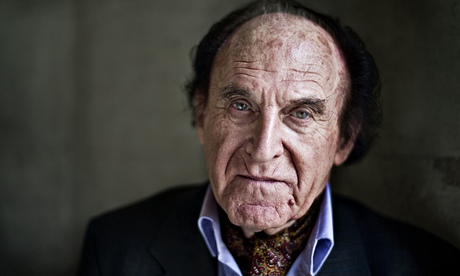
One of the mysteries of great suffering is how hard it is to penetrate from the outside. Otto Dov Kulka's account of his time as a child in Auschwitz tells us almost nothing of the history of the place and how it came to be. That is for the reader, as it was for the child Kulka, something given. The only concessions to conventional history come in digressions, as in the account of his mother's departure and death, when the ramifications of the system and its long ghastly tentacles are explored.
As an adult, Kulka became a historian of the causes of the Holocaust. But one of the subjects of his book is the absolute disconnect between his studies and his experiences. In his work as a historian he stopped short of the camp gates: "in all my research I never had to deal with the stage, the dimension, of the violent end, the murder, the humiliation and the torture of those human beings."
He avoided, also, a great deal that had been written and filmed about the Holocaust. He did not read camp memoirs, and he did not watch Claud Lanzmann's film Shoah. At last he was invited at a conference to attend a lecture on the subject of the Holocaust in literature, and felt that politeness compelled him to accept. He listened, and felt an extraordinary disconnection: that the language in which the Holocaust might be described by outsiders was one he could not understand himself, while the language with which he could make sense of it himself, his mythology as he elsewhere calls it, was entirely different.
Despite that, he read one of the books mentioned in the lecture – he does not say which one, but praises it in the abstract. Yet, he says, he read it with appalled astonishment because it seemed to be describing a camp entirely different from the one where he had suffered. This was not a matter of factual disputes, nor even of tone, but something deeper than either. He simply cannot place his own experience and his own story inside these accounts.
In his despair, he turns to Kafka, an author whom he loves, and finds the parable of the gate of the law in which a traveller waits all his life outside the Gate of the Law, held up by a gatekeeper who will not give him permission to enter, although he will not stop him either. But the traveller stays, and waits for permission until at last, as he is dying, he asks the gatekeeper why, if the gate of the law is open to everyone, he has seen no one else enter. The gatekeeper replies: "This gate is open only for you; it exists only for you, and now I am going to close it."
When first I read this, it made very little sense to me. There was an echo in one of the footnotes to The Waste Land, when TS Eliot quotes the now largely forgotten idealist philosopher FH Bradley: "My external sensations are no less private to my self than are my thoughts or my feelings. In either case my experience falls within my own circle, a circle closed on the outside … the whole world for each is peculiar and private to that soul" – but that just sounded like high-minded solipsism.
But Kulka found the Kafka passage profoundly satisfying. It answered the question he had asked himself after the lecture: what was wrong with him that he could not recognise the Auschwitz in which other great writers had suffered. The answer seems to be that he could not, by necessity, experience Auschwitz through anyone else's eyes, for he had been there himself: "this Auschwitz … which speaks here from my words, is the only entrance and exit ... that exists for me alone. I take this to mean that I cannot enter by any other way, by any other gate to that place."
But why, then, are we able to enter into his experience, or that of Primo Levi? The question is one of the most profound parts of the book, and the answer one of the most hopeful. Kulka asks: "Will others be able to enter through the gate that I opened here, that remains open for me? It is possible that they will, because this gate that Kafka opened, which was intended for only one person, for K, Josef K, is actually open to almost everyone."
We, who have no gates of our own to that place, can in fact enter through the gates that great writers make. There is some sense in which art connects us to each other. This shared interiority in life seems to hint darkly at some sense in which the immutable law of the Great Death – as Kulka calls it – may be repealed.

